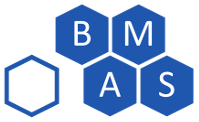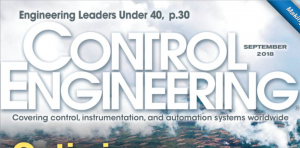
Value, in our industry, is much more than just the price for a given product or service. It includes the time savings and peace of mind that come with forethought, experience, and attention to detail. Expensive automation can be very high in value if it prevents mistakes and saves time. Cheap automation can be very low in value if it’s difficult to operate or causes poor product quality. At Breen Machine, we’re proud to consistently provide high value on time and in budget. How do we do it? In a word: deliberately.
The Right Fit
We believe that our business only succeeds by helping others succeed. That means every project should add to the bottom line for our customers and make life easier. And we can best do that by focusing on our strengths and serving customers that share our values. When the fit is right, you can’t get better service at this price anywhere else. When the fit isn’t right, We’ll be the first to tell you. At the end of the day, what’s best for your business is also best for us, and we don’t want to waste anyone’s time trying to push a triangular block into a square hole.
Too Hot/Too Cold
So what is that right fit? Let’s start with what it’s not. On the spectrum from small to large (and free to expensive), the two extremes aren’t a good fit. On the small end, if you’re looking for help selecting parts and a little advice, usually suppliers and manufacturers offer that support for free. Especially if you already know what brand you’re looking for, these resources are very knowledgeable, and I’d recommend you take advantage of them.
We focus on controls, so on the other end of the spectrum, if you’re looking for a large turnkey production system, you’ll probably want to work with a large OEM. They have the fabrication resources and floor space to accommodate these types of projects.
Just Right
Right in the middle of the spectrum is where we fit. When a project goes beyond the free resources of a supplier, we’re here to help with design, programming, assembly, startup, and training. Nothing’s too small or too challenging. We can help with new automation or breathing new life into existing equipment. Breen Machine handles the gamut of industrial control projects.
Are you looking for quality engineering, expert programming, detail-oriented installation, and a finished product that the operators can’t screw up and maintenance doesn’t have to pull their hair out over? We’re your team! Do you have an urgent need to do the impossible? Those are our favorite projects! I could go on and on about the cool things we do, but it’s probably more efficient to check out our website or get in touch with us.
The Right Questions
Once we’ve decided things look like a good fit, we look to understand every aspect of the project. That means asking good questions, listening, and finding creative solutions to our customers’ needs. We view this as a partnership. Our customers are the experts on their products. They know what their production numbers look like, how the product is made, and how to ensure quality. We know how to measure and automate those processes to make a smooth and predictable system that maximizes ROI. We’ll apply our years of experience to understanding your needs and helping you find solutions that fit just right.
Making a Plan
Now that we know what we’re dealing with, it’s time to make a plan. It’s not the most glamorous part of the process, but it’s crucial to ensuring success. We estimate each part of the project, establish milestones, and look for potential challenges. We can often speed things up by overlapping certain phases of the project, reduce production downtime by carefully arranging the installation, and mitigate the risk of delays by addressing unknowns early in the project and making backup plans where appropriate.
Up to this point, all our services are part of the free quoting process. The next step is where the paid project work begins.
The Right Engineering and Programming
Engineering and programming are different animals, but in order to predictably produce high value at low cost, they are approached in a similar way. First we need to understand what we’re trying to achieve, then break it up into manageable chunks, and finally apply appropriate, time tested practices to each chunk. By taking this approach we’re supporting the end-user, by making the automation easy to use, easy to maintain, and providing useful data to management.
In engineering, this starts with foundational knowledge and standards like the NEC. We then add years of industry experience, noting what works and doesn’t, and refining a process to efficiently produce designs with all the benefits that experience provides. We leave space in panels for future additions, spec drives and power systems large enough to do their job effortlessly, and use sensing in the right places to make a reliable system.
The programming is similar. Deep programming knowledge and fluency in many programming languages and techniques form the foundation. We build on this with years of focusing on the end-user. Short code doesn’t help if it’s function isn’t obvious. Structured code is a bad thing if it makes future changes difficult. Pretty code doesn’t mean anything if the operator can’t understand how to run the equipment. We know how to make programs that are clean, elegant, and readable, designed to be maintainable and upgradeable in the future, and easy for anyone to operate.
Finishing Touches
The end of the project is full of opportunity to add value for all stakeholders, and we give this the focus it deserves. We support maintenance and engineering by cleaning up code and updating documentation. We support production personnel with clear HMI messaging, intuitive functionality, and training. We support management with runtime metrics and data capture. And we watch production staff run the equipment, looking for anything that’s confusing to them so we can refine it.
Flexibility
Let’s face it – plans change. Customers change their minds, products get redesigned, employees leave during critical times, components fail, and if Mr. Murphy is right, always in the worst possible way at the worst possible time. Rolling with the changes isn’t easy, but it’s something we excel at. We’re nimble and resourceful and we’re here to help. When things go south and you’re out of your depth, when OEMs are overbooked or uninterested, when it’s not practical to build or expand your own controls team, we’ve got your back.
One example that I’ve seen over and over again: A machine builder loses their controls guy halfway through debug. Now they’ve got all this money invested in hardware and a program that doesn’t work, nobody knows anything about the machine, and their customer is still expecting an on-time delivery. We’ve worked with so many different kinds of machines, it’s easy for us to step in and fill those empty shoes. We can quickly get familiar with the equipment, reverse engineer as needed, debug the program, and get you back on track.
Another common catastrophe we’re good at averting: Requirements change during time-critical installs even requiring new PLCs and drives or a timeline gets accelerated to the point where people start calling it impossible. Our sharp people have updated designs and gotten new parts installed the next day, getting the project back on schedule like nothing happened. And we’re willing to put in the time and creativity to make the impossible happen.
The Personal Touch
Breen Machine’s approach of focusing on relationships is unique in this industry. We’re a team of sharp controls engineers that are actually friendly, and that’s by design. A friendly person, focused on your needs and armed with the right resources, can add immense value to any project well beyond machine performance. It’s like having a seasoned adviser, brilliant programmer, and friend all wrapped into one – making automation that just works. Easy communication, peace of mind, and a smile are our standard. How can we make your life easier?

About the Author
Jon is an engineer, entrepreneur, and teacher. His passion is creating and improving the systems that enhance human life, from automating repetitive tasks to empowering people in their careers. In his spare time, Jon enjoys engineering biological systems in his yard (gardening).









